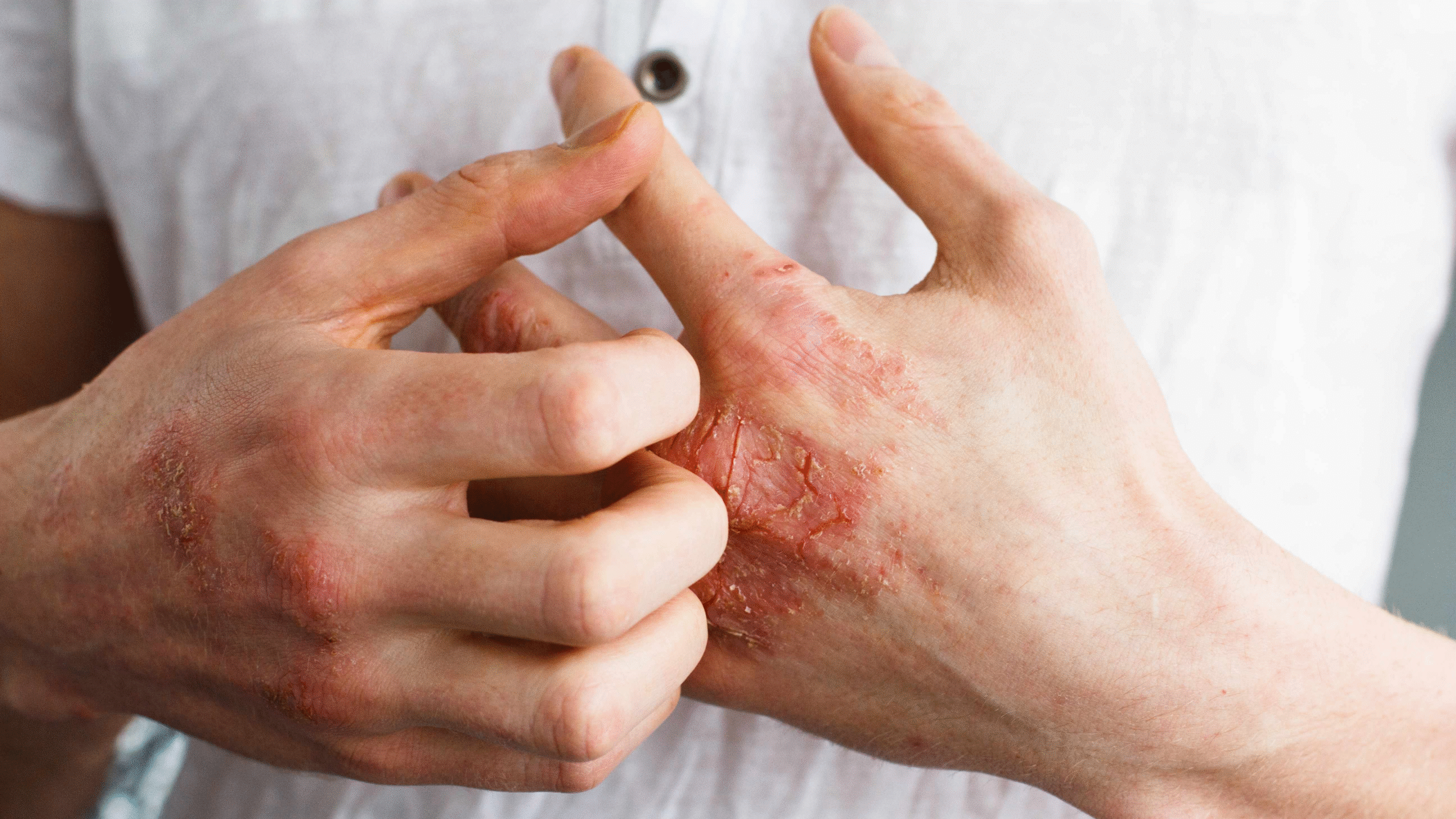Living with eczema can feel like a never-ending cycle of itching, redness, and irritation. Whether it’s a small patch on your arm or widespread flare-ups, eczema (also known as atopic dermatitis) can be both physically uncomfortable and emotionally draining. While prescription creams and medications are available, many people are turning to natural remedies to manage their symptoms without harsh chemicals.
In this article, we’ll explore the best natural remedies for eczema flare-ups, why they work, and how to use them safely. We’ll also answer some of the most common questions about natural eczema care. Let’s get into it, the human way.
🌿 What Is Eczema?
Eczema is a chronic skin condition that causes dryness, redness, inflammation, and intense itching. The exact cause isn’t fully understood, but it’s believed to be linked to a combination of genetics, immune system overreaction, and environmental triggers like stress, allergens, and weather changes.
There’s no cure for eczema, but it can be managed—and often, natural remedies can play a big role in calming symptoms during flare-ups.
✅ 10 Natural Remedies for Eczema Flare-Ups
1. Coconut Oil
Coconut oil is a favorite in the natural skincare world—and for good reason. It contains healthy fatty acids that moisturize and protect the skin barrier. It also has anti-inflammatory and antibacterial properties that can reduce infection and redness.
- How to use: Apply virgin coconut oil directly to the affected area after bathing, while your skin is still slightly damp.
2. Aloe Vera Gel
Aloe vera is known for its cooling and soothing effects, making it great for eczema-prone skin. It helps hydrate dry skin and reduce inflammation and itchiness.
- How to use: Use pure aloe vera gel from the plant or purchase 100% organic aloe vera gel. Apply it gently to the skin once or twice a day.
3. Colloidal Oatmeal
This remedy may sound odd, but colloidal oatmeal (finely ground oats) has been used for centuries to relieve itchy and irritated skin. It forms a protective layer and locks in moisture while calming the skin.
- How to use: Add a handful of colloidal oatmeal to your warm bath and soak for 10–15 minutes. Pat your skin dry and follow up with a natural moisturizer.
4. Apple Cider Vinegar (Diluted)
Apple cider vinegar helps balance the skin’s pH and has antibacterial properties. However, it must always be diluted, or it could irritate your skin more.
- How to use: Mix 1 part apple cider vinegar with 2 parts water. Apply gently with a cotton pad to the flare-up area, or add a small amount to a bath soak.
5. Evening Primrose Oil
Evening primrose oil is high in gamma-linolenic acid (GLA), a type of omega-6 fatty acid that has anti-inflammatory properties. Some people use it topically, while others take it as a supplement.
- How to use: Apply the oil directly to the skin or take capsules as directed by your healthcare provider.
6. Chamomile Compress
Chamomile is a gentle herb that can help calm inflammation and reduce itching. It has natural anti-inflammatory and antimicrobial properties.
- How to use: Brew chamomile tea, soak a clean cloth in it, let it cool slightly, and place the compress on the eczema patch for 10–15 minutes.
7. Honey
Raw honey is another natural anti-inflammatory and antibacterial remedy that can help heal eczema wounds and soothe irritated skin.
- How to use: Apply a thin layer of raw, organic honey to affected areas. Leave it on for 15–20 minutes, then rinse off with lukewarm water.
8. Sunflower Seed Oil
Sunflower oil helps improve the skin’s barrier function and hydrates dry patches. It’s especially beneficial for people with sensitive or eczema-prone skin.
- How to use: Apply directly to the skin after showering to lock in moisture.
9. Probiotics
While not a topical remedy, probiotics (good bacteria) can help support your immune system and gut health—which may have a direct link to eczema flare-ups.
- How to use: Include probiotic-rich foods like yogurt, kefir, sauerkraut, and kimchi in your diet, or consider a supplement.
10. Dietary Changes
What you eat can greatly affect how your skin behaves. Some people find that removing common eczema triggers like dairy, gluten, eggs, or sugar reduces flare-ups.
- How to try: Keep a food diary and track how your skin reacts after certain meals. An elimination diet may also help, but consult a doctor before making major changes.
🌬️ Extra Tips for Managing Eczema Naturally
- Stay hydrated: Drink plenty of water daily to keep skin from drying out.
- Avoid harsh soaps: Use gentle, fragrance-free cleansers and detergents.
- Wear cotton clothing: Breathable fabrics reduce sweating and irritation.
- Manage stress: Try meditation, yoga, or simply going for a walk.
- Keep fingernails short: This helps prevent damage from scratching.
❓ 5 Frequently Asked Questions (FAQs)
1. Can eczema be cured permanently with natural remedies?
Unfortunately, there is no permanent cure for eczema. However, natural remedies can help reduce flare-ups and manage symptoms very effectively. Consistency is key.
2. Is coconut oil safe for all eczema types?
While many people benefit from coconut oil, some individuals with very sensitive skin may react to it. Always do a patch test before applying it over large areas.
3. What foods should I avoid if I have eczema?
Common eczema triggers include dairy, eggs, gluten, soy, and sugar. Everyone is different, so it’s best to monitor how your skin reacts after eating these foods.
4. Are natural remedies safe for babies with eczema?
Some remedies like coconut oil and oatmeal baths can be safe for babies, but it’s best to consult a pediatrician before trying any new treatments.
5. How long does it take for natural remedies to work?
You may notice improvement within a few days, but long-term relief may take a few weeks. Patience and consistency are important when using natural methods.
🌼 Final Thoughts
Managing eczema naturally is about finding what works for your skin. What helps one person may not work for another. The good news is that there are plenty of gentle, affordable, and effective remedies to try. Always remember to moisturize, avoid known triggers, and treat your skin with kindness.
If you experience severe eczema or infections, don’t hesitate to consult a dermatologist for additional support. Natural remedies can work well—but sometimes they’re best when paired with professional care.



